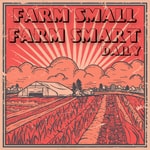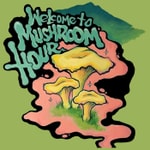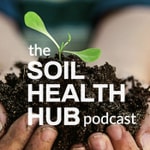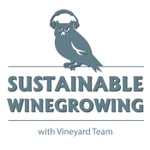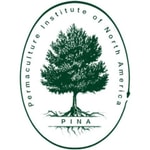In Search of Soil – Details, episodes & analysis
Podcast details
Technical and general information from the podcast's RSS feed.
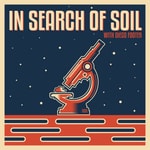
In Search of Soil
Diego Footer
Frequency: 1 episode/7d. Total Eps: 24

Recent rankings
Latest chart positions across Apple Podcasts and Spotify rankings.
Apple Podcasts
🇨🇦 Canada - nature
30/07/2025#82🇬🇧 Great Britain - nature
30/07/2025#50🇨🇦 Canada - nature
29/07/2025#68🇨🇦 Canada - nature
28/07/2025#50🇨🇦 Canada - nature
27/07/2025#40🇺🇸 USA - nature
25/07/2025#67🇨🇦 Canada - nature
01/07/2025#97🇨🇦 Canada - nature
30/06/2025#82🇨🇦 Canada - nature
29/06/2025#63🇺🇸 USA - nature
29/06/2025#91
Spotify
No recent rankings available
Shared links between episodes and podcasts
Links found in episode descriptions and other podcasts that share them.
See all- https://growepic.co/shop
46 shares
- https://growepic.co/blog
46 shares
- https://growepic.co/youtube
46 shares
- https://youtu.be/q8o_f8jL3g8
2 shares
RSS feed quality and score
Technical evaluation of the podcast's RSS feed quality and structure.
See allScore global : 63%
Publication history
Monthly episode publishing history over the past years.
Soil Macrofauna with Dr. Adriano Sofo - ISOS S2 #10
samedi 29 juillet 2023 • Duration 01:14:29
In this episode of In Search of Soil, we’re talking to Italian soil Scientist Dr. Adriano Sofo to shed some light on the importance of soil macrofauna, earthworms, beetles, ants, and the like, and their roles in building healthier soil for more sustainable agriculture.
Dr. Adriano Sofo is an associate professor in the University of Basilicata in Matera, Italy. Cited more than four thousand times, his research interests include plant-soil interactions, biogeochemistry, and environmental botany. With a passion for educating, he believes that information dissemination is the key to creating a more sustainable and regenerative agricultural landscape.
List of Dr. Adriano Sofo’s Works
WATCH FULL EPISODES
YouTube https://bit.ly/watchISOS
SUPPORT EPIC GARDENING
→ Shop: https://growepic.co/shop
→ Seeds: https://growepic.co/botanicalinterests
LEARN MORE
→ All Our Channels: https://growepic.co/youtube
→ Blog: https://growepic.co/blog
→ Podcast: https://growepic.co/podcasts
→ Discord: https://growepic.co/discord
→ Instagram: https://growepic.co/insta
→ TikTok: https://growepic.co/tiktok
→ Pinterest: https://growepic.co/pinterest
→ Twitter: https://growepic.co/twitter
→ Facebook: https://growepic.co/facebook
→ FB Group: https://growepic.co/fbgroup
- Traditional agricultural practices that deplete soil organic matter and biodiversity (01:45)
- How Dr. Sofo defines minimum till (05:23)
- The band of soil that plays the greatest role in agronomy and the band of soil you don’t want to disturb (07:04)
- Incorporating organic matter into the soil vs. leaving organic matter on the soil surface (10:07)
- Completely wet soil vs. wet soil surface: is there a difference in plant health? (14:05)
- It all depends on the root morphology and root architecture (18:15)
- How different irrigation systems can affect plant growth (19:33)
- Will tillage dry out soil faster? (24:50)
- Why isn’t sustainable agriculture viewed as a better option? Why do farmers still subscribe to conventional farming practices? (27:33)
- The soil has as much carbon as the biosphere and the atmosphere (32:38)
- The importance of soil microfauna, mesofauna, macrofauna, and megafauna (33:28)
- The roles that earthworms play in soil health (39:00)
- What roles do ants play in soil health? (42:15)
- Who aerates the soil more, earthworms or ants? (44:31)
- How to increase the earthworm population in your soils (47:42)
- Why does the soil collapse with tillage but maintains its structure with the macrofauna? (49:52)
- Speeding up the reversal of compaction (57:01)
- Aerating the soil with a broadfork (59:59)
- Is it possible to get to a point where you can let nature take care of the soil? (01:01:17)
- Choosing the gentle approach over the harsh approach (01:05:10)
- Organic matter in soil: layering vs. mixing (01:06:18)
- Defining sustainable agriculture today (01:09:57)
- What Dr. Adriano Sofo wants farmers to know (01:11:18)
The Science of EM (Essential Microorganisms) with Dr. Matthew Wood - ISOS S2 #9
samedi 22 juillet 2023 • Duration 01:02:48
In this episode of In Search of Soil, we’re talking to one of the pioneers in developing probiotic technology, Dr. Matthew Wood, to shed some light on what efficient microbes (EM) are, what they do to the soil, and how our soils can benefit from adding them.
Dr. Matthew Wood earned his Bachelor’s degree in Soil and Atmospheric Sciences from the University of Missouri-Columbia and his Master’s degree working under Dr. Teruo Higa from the University of Ryukus in Okinawa, Japan. His work in probiotics resulted in global engagements in many fields including microbiology, agriculture, and human health. In 2004, he founded SCD Probiotics where they develop and commercialize consortia fermentation technologies for multiple industries.
More on microbes at SCD Probiotics: https://www.scdprobiotics.com/
WATCH FULL EPISODES
YouTube https://bit.ly/watchISOS
SUPPORT EPIC GARDENING
→ Shop: https://growepic.co/shop
→ Seeds: https://growepic.co/botanicalinterests
LEARN MORE
→ All Our Channels: https://growepic.co/youtube
→ Blog: https://growepic.co/blog
→ Podcast: https://growepic.co/podcasts
→ Discord: https://growepic.co/discord
→ Instagram: https://growepic.co/insta
→ TikTok: https://growepic.co/tiktok
→ Pinterest: https://growepic.co/pinterest
→ Twitter: https://growepic.co/twitter
→ Facebook: https://growepic.co/facebook
→ FB Group: https://growepic.co/fbgroup
- Dr. Matthew Wood’s interest in the soil sciences (01:40)
- Studying in Japan and working with Dr. Teruo Higa (03:24)
- Notable findings working with Dr. Teruo Higa (04:43)
- An increase in the diversity index (05:05)
- Plant-microbe communication (06:53)
- What is EM? (08:35)
- The concept of consortia in the context of microbes (11:25)
- The whole is greater than the sum of individual parts (12:28)
- The question of the purity of cultures (15:11)
- What happens in the transition microbes go through (16:22)
- Cultured microbes adapting to the soil pH (19:25)
- Stimulating the biology in the soil (22:17)
- Observing a single microorganism would yield different findings versus observed together with other microorganisms (25:45)
- What EM will do to the microfauna in your local soil (28:35)
- A potential reason why EM hasn’t been adopted widely (30:30)
- An article about classifying soils based on which microbes were dominant in the system (31:22)
- How long before seeing the long-term changes made by EM (32:57)
- SCD Probiotics approach: biochemical products that act like chemicals
- Breaking the business: industrial, agricultural, consumer (35:57)
- Culturing out mother cultures and lowering the cost per application (38:29)
- Dr. Matthew Woods’ SCD product recommendations to start with (39:51)
- Using beneficial microorganisms as foliar feed (43:00)
- Ways that beneficial microbes push out pathogenic microbes (44:11)
- The worry of whether the beneficial microbes will live or die after applying them to a system (46:42)
- What EM’s major groups of microbes do for the soil (48:44)
- Adding a mother culture to a compost pile (51:29)
- Beneficial microbes neutralizing foul odors (54:48)
- Sharing the built-up localized bacteria base (55:33)
- Dr. Teruo Higa: It’s not the presence of the pathogen that causes the problem, it’s the high population of the pathogen that does. (57:17)
- Can you go overboard with adding mother culture to your soil? (59:06)
- Using a mother culture to re-energize depleted soils (01:00:35)
In Search Of Soil: Season 2 Starts Next Week!
samedi 20 mai 2023 • Duration 01:18
We're collecting a new batch of In Search Of Soil episodes! Season 2 starts next week. We know you'll love what comes next! Stay tuned for more deep-dive explorations into the science behind your soil!
While you wait, we'd love for you to experience some of the other great stuff we have to offer:
WATCH FULL EPISODES
YouTube https://bit.ly/watchISOS
SUPPORT EPIC GARDENING
→ Shop: https://growepic.co/shop
→ Seeds: https://growepic.co/botanicalinterests
LEARN MORE
→ All Our Channels: https://growepic.co/youtube
→ Blog: https://growepic.co/blog
→ Podcast: https://growepic.co/podcasts
→ Discord: https://growepic.co/discord
→ Instagram: https://growepic.co/insta
→ TikTok: https://growepic.co/tiktok
→ Pinterest: https://growepic.co/pinterest
→ Twitter: https://growepic.co/twitter
→ Facebook: https://growepic.co/facebook
→ FB Group: https://growepic.co/fbgroup
In Search Of Soil: Season 2 Coming Soon!
samedi 13 mai 2023 • Duration 01:12
We're cultivating a new crop of In Search Of Soil episodes for you, and Season 2 is coming soon! Stay tuned for the next batch of explorations into the science behind your soil!
While you wait, we'd love for you to experience some of the other great stuff we have to offer:
WATCH FULL EPISODES
YouTube https://bit.ly/watchISOS
SUPPORT EPIC GARDENING
→ Shop: https://growepic.co/shop
→ Seeds: https://growepic.co/botanicalinterests
LEARN MORE
→ All Our Channels: https://growepic.co/youtube
→ Blog: https://growepic.co/blog
→ Podcast: https://growepic.co/podcasts
→ Discord: https://growepic.co/discord
→ Instagram: https://growepic.co/insta
→ TikTok: https://growepic.co/tiktok
→ Pinterest: https://growepic.co/pinterest
→ Twitter: https://growepic.co/twitter
→ Facebook: https://growepic.co/facebook
→ FB Group: https://growepic.co/fbgroup
In Search Of Soil: Season 2 Is On The Way!
samedi 6 mai 2023 • Duration 01:13
We're collecting a new batch of In Search Of Soil episodes! Season 2 is in the near future, and we know you'll love what comes next. Stay tuned for the next batch of deep-dive explorations into the science behind your soil!
While you wait, we'd love for you to experience some of the other great stuff we have to offer:
WATCH FULL EPISODES
YouTube https://bit.ly/watchISOS
SUPPORT EPIC GARDENING
→ Shop: https://growepic.co/shop
→ Seeds: https://growepic.co/botanicalinterests
LEARN MORE
→ All Our Channels: https://growepic.co/youtube
→ Blog: https://growepic.co/blog
→ Podcast: https://growepic.co/podcasts
→ Discord: https://growepic.co/discord
→ Instagram: https://growepic.co/insta
→ TikTok: https://growepic.co/tiktok
→ Pinterest: https://growepic.co/pinterest
→ Twitter: https://growepic.co/twitter
→ Facebook: https://growepic.co/facebook
→ FB Group: https://growepic.co/fbgroup
Compost with Randy Ritchie - ISOS S1 #10
samedi 22 avril 2023 • Duration 01:49:15
We’ve heard and talked about compost and compost teas. We’ve also discussed all the different ways to make your own compost and compost teas. But say that you just don’t have the time to make your own - you’d probably just hop on over to the municipal composting site, grab a truckload, and go home. How can you tell that the compost you got is actually good quality compost? Does it matter?
Our guest, Randy Ritchie, will talk about exactly that topic and what it all means in this episode of In Search of Soil!
From working as a landscaper in his design in build business, Randy noticed the need for better, more environmentally-conscious steps in his business. Then, when he met Alan York and the biology in his compost, Randy felt the tug of working with the soil and moving on to composting.
Learn about Malibu Compost - https://www.malibucompost.com/
WATCH FULL EPISODES
YouTube https://bit.ly/watchISOS
SUPPORT EPIC GARDENING
→ Shop: https://growepic.co/shop
→ Seeds: https://growepic.co/botanicalinterests
LEARN MORE
→ All Our Channels: https://growepic.co/youtube
→ Blog: https://growepic.co/blog
→ Podcast: https://growepic.co/podcasts
→ Discord: https://growepic.co/discord
→ Instagram: https://growepic.co/insta
→ TikTok: https://growepic.co/tiktok
→ Pinterest: https://growepic.co/pinterest
→ Twitter: https://growepic.co/twitter
→ Facebook: https://growepic.co/facebook
→ FB Group: https://growepic.co/fbgroup
- How and why Randy Ritchie got into the composting business (01:27)
- The mind-blowing difference between good, high-quality compost and poor compost (03:30)
- Why you see coarser composts in municipal yards (05:35)
- Municipal composting, fungi, and time (07:40)
- Taking care of what goes into the green waste bin (09:55)
- The problem of persistent herbicides and chemicals (10:38)
- Which is better starting off: no compost, subpar compost, or good quality compost? (13:03)
- Why run toxicology tests on compost? Are there other toxins apart from herbicide and pesticides? (16:43)
- Randy’s take on manure from a conventional system as compost material (19:48)
- Financially speaking, would it be more beneficial to get conventional manures vs. organic manures? (22:24)
- Randy’s take on using biosolids as inputs (25:15)
- Are all manures created equal? (27:02)
- Salt content in compost (30:00)
- Is compost a critical component to creating high-quality compost? (30:35)
- Soil analysis and compost analysis in NPK values (33:33)
- How much of a ‘fertilizer kick’ is in good compost (36:07)
- Adding unfinished or poor-quality compost: adding more harm than good (38:30)
- When the compost is finished, how much of the pile is aerobic and how much just needs to cure (43:43)
- What regulations say that compost should be (47:58)
- A right level of moisture content in compost (50:38)
- Cutting through the BS and figuring out if the products are as good as what it says in the bags (52:40)
- The multitude of amendments and products and the actual need for it (57:44)
- Doing microscope work on finished compost (01:02:20)
- Why Randy felt that selling biodynamic compost was important (01:03:55)
- The biodynamics and the amendment itself is what sets the product apart (01:08:50)
- The gray area that is biodynamics and satisfying curiosity by going with what feels right (01:11:38)
- Adding a compost tea into the product offerings (01:14:40)
- The compost tea kits (01:20:55)
- Potting mixes and Baby Bu’s Biodynamic Blend (01:23:30)
- A takeaway that Randy wants the audience to take home (01:32:45)
- “I want people to be self-sufficient.” – Randy Ritchie (01:35:05)
- Randy’s advice for people who want to start a composting business (01:37:45)
- Having and holding onto the conviction to charge what you need to charge for your premium product (01:40:05)
Soil Carbon with Dr. Bruno Basso - ISOS S1 #9
samedi 15 avril 2023 • Duration 02:04:31
Carbon sequestration, carbon emission, carbon building. Soil carbon, organic carbon, and accessible carbon. They all keep popping up here and there in the farming space, but what exactly do they all mean? With carbon being thrown around everywhere, it’s understandable to get confused somewhere along the line.
This is why today’s guest, Dr. Bruno Basso of Michigan State University, will shed some light and hopefully clear up the mist surrounding carbon, its different forms, and how significant it is when it comes to agriculture and environmental sustainability.
Dr. Bruno Basso is a professor in the Department of Earth and Environmental Sciences at Michigan State University. An internationally recognized agricultural scientist, Dr. Basso co-founded CiBO Technologies, where they aim to incentivize farmers for applying environmentally sustainable practices.
More on CIBO Technologies: https://www.cibotechnologies.com/
WATCH FULL EPISODES
YouTube https://bit.ly/watchISOS
SUPPORT EPIC GARDENING
→ Shop: https://growepic.co/shop
→ Seeds: https://growepic.co/botanicalinterests
LEARN MORE
→ All Our Channels: https://growepic.co/youtube
→ Blog: https://growepic.co/blog
→ Podcast: https://growepic.co/podcasts
→ Discord: https://growepic.co/discord
→ Instagram: https://growepic.co/insta
→ TikTok: https://growepic.co/tiktok
→ Pinterest: https://growepic.co/pinterest
→ Twitter: https://growepic.co/twitter
→ Facebook: https://growepic.co/facebook
→ FB Group: https://growepic.co/fbgroup
- How Dr. Bruno Basso views carbon sequestration in soil (01:55)
- How plants sequester carbon in two ways (02:45)
- The presence of carbon in the soil can serve as a health check of sorts (03:52)
- In a natural system, does the carbon balance itself out? (04:55)
- The carbon imbalance in a managed system (07:34)
- You break the aggregates when you touch the soil (08:24)
- The positive aspect behind carbon retention (11:14)
- Does soil saturation affect the evolution of plant life? (12:45)
- The soil carbon is at equilibrium if you don’t till it (15:08)
- What happens when you add more organic carbon to an already carbon-saturated soil? (16:03)
- The difference with carbon as an element (17:12)
- The problem is losing carbon by “opening the jar” (18:22)
- Does soil carbon saturation automatically mean that the plants will be healthy? (19:43)
- The changes of microbial behavior in carbon-saturated soil (22:17)
- Plants and crops that naturally sequester carbon (24:24)
- Do all fertilizers contribute to greenhouse gases equally? (31:40)
- The emission factor (32:41)
- Plants do not utilize organic nitrogen (33:33)
- If you plant corn in a no-till system with good soil, will you still need to add nitrogen? (35:43)
- Is nitrogen the same as carbon in the sense that there’s a saturation point in the soil and storage comes down to the biomass? (39:48)
- Even in the healthiest systems, you’ll need to add nitrogen (45:58)
- Legume cover crops and adding nitrogen into the soil (47:02)
- The reason behind keeping a live root: you want something to catch what leaks out of the leaky system (50:10)
- The benefits of planting a cover crop from the fall to the freeze to the thaw (51:30)
- Do you sacrifice yield by interplanting multiple crop species? (57:22)
- Keep the soil covered to prevent soil evaporation (58:52)
- When and where tillage becomes a problem (01:00:52)
- Inversion tillage should be avoided (01:02:45)
- The damage is done only where you do tillage (01:05:08)
- Explaining and valuing the different forms of carbon (01:04:14)
- How to build your soil into a favorable intermediate pool (01:11:32)
- Is carbon decomposition above and below ground? (01:15:07)
- Building soil up and building soil down (01:18:00)
- Note that temperature plays a big role (01:20:10)
- The percent of clay in soil plays a protection factor (01:20:52)
- Dr. Bruno Basso’s take on biochar and how it affects carbon equilibrium (01:21:15)
- How practices play into the future of carbon credit (01:23:35)
- Carbon farming is the new way of farming (01:29:22)
- Looking ahead: the possibility of selling carbon credits in 10 years’ time (01:29:58)
- The approach to take if you want to sequester as much carbon as possible (01:33:13)
- The plant with more root biomass sequesters more carbon (01:35:32)
- We win when we start making fertilizer by electricity and not by fossil fuels (01:37:46)
- Climate change, changes in temperature, yield, and sequestering carbon (01:38:17)
- Using global warming to your advantage (01:42:17)
- Nitrogen management: how much nitrogen you’re applying and how much nitrogen comes out as plant protein (01:43:38)
- Growing for quality versus growing for weight and volume (01:48:52)
- Incentivize the farmers to adopt good farming systems (01:50:54)
- The ideal situation is having profitability, environmental sustainability, and environmental justice come together (01:52:22)
- A viable future in poly-culture systems: the younger generation and urban farming (01:53:13)
- What vegetable farmers can do to start building their soil (01:57:07)
- Don’t farm naked, keep the soil covered (01:58:03)
- A brighter future where carbon is managed, and farmers are compensated (02:00:25)
Soil Nutrients with Dr. Buz Kloot - ISOS S1 #8
samedi 8 avril 2023 • Duration 01:34:02
What if your soil test just came back, and suddenly someone tells you that your soil’s nutrient values will stay consistent regardless of whether or not you put amendments? Understandably, you would find that hard to believe. You’d probably ask, where is it coming from, and where does it go?
Today, we’re talking to Dr. Buz Kloot of Soil Health Lab to discuss just that.
Dr. Buz Kloot began his professional career as a chemical engineer. He then joined the University of South Carolina in 1999 and has since worked on various agriculture and environmental quality projects. His passion for soil health brings him to work closely and collaboratively with farmers.
More on Buz: https://soilhealthlabs.com/
WATCH FULL EPISODES
YouTube https://bit.ly/watchISOS
SUPPORT EPIC GARDENING
→ Shop: https://growepic.co/shop
→ Seeds: https://growepic.co/botanicalinterests
LEARN MORE
→ All Our Channels: https://growepic.co/youtube
→ Blog: https://growepic.co/blog
→ Podcast: https://growepic.co/podcasts
→ Discord: https://growepic.co/discord
→ Instagram: https://growepic.co/insta
→ TikTok: https://growepic.co/tiktok
→ Pinterest: https://growepic.co/pinterest
→ Twitter: https://growepic.co/twitter
→ Facebook: https://growepic.co/facebook
→ FB Group: https://growepic.co/fbgroup
- How Dr. Kloot’s background in chemical engineering helped him with his research in the soil space (01:52)
- Meeting Ray Archuleta changed how Dr. Kloot saw soil (03:17)
- The pros and cons of coming into soil science without a soil science background (03:55)
- The biggest mistake Dr. Kloot made that helped him advance his knowledge (05:44)
- Dr. Kloot’s view on the importance of soil micronutrients for plant growth (08:14)
- The argument of adding micronutrient and macronutrient amendment to the soil (10:20)
- Where the soil potassium comes from when you’re not applying it (13:54)
- The potential of clay soils and the biology (16:31)
- Soil testing: is it really beneficial despite the lack of information of the soil biology? (18:22)
- The value of soil tests is based on calibrated returns (20:57)
- Outdated soil recommendations from half a decade ago (23:15)
- The possibility and plausibility of going farming with zero chemical amendments (23:20)
- The caveat is needing to build your soil first (24:48)
- Do we have a better understanding of aquatic systems than soil systems? (27:05)
- The five principles of soil health (29:34)
- Keep disturbance to a minimum (31:05)
- Keep the soil covered with a living canopy (31:15)
- Keep a live root in the soil all year round (31:35)
- Keep diversity, diversity, diversity (32:30)
- Integrate livestock back into your system (33:12)
- What ticks 3 boxes all at once: multispecies cover crops (33:52)
- A case study of practicing multispecies cover crops (35:45)
- Jason Carter’s cover crop trial (36:12)
- Farmers’ concerns on why they wouldn’t grow cover crops (42:00)
- The potential added costs (43:35)
- Planting into the residue (45:00)
- Let’s be intelligent about choosing cover crops (46:52)
- Emulating hoof action of animals with a Phillips Harrow (47:27)
- The potential soil damage that comes from chemical herbicide (50:58)
- Francis Chaboussou: the excess nitrogen we use make plants tastier for pests (53:09)
- Tillage or herbicides: which would cause less damage (55:02)
- The Holy Grail of terminating cover crops: no tillage, no herbicides (57:18)
- Choosing between a single species of cover crop that terminates easily mechanically or a multispecies cover crop that is tricky to terminate (58:20)
- The why and how behind the steady levels of phosphorus, nitrogen, and potassium in the soil (59:37)
- The idea of looking more into plant tissues to determine soil health (01:02:58)
- Looking at plant sap analysis rather than plant tissue analysis (01:05:25)
- Where foliar fertilization comes into the context (01:06:40)
- Foliar feeding versus root feeding via soil drenching (01:08:24)
- Growing a perennial-type cover crop and keeping it alive (01:09:47)
- Dr. Kloot’s opinion on seeds co-existing with cash crops (01:12:05)
- Looking at weeds from an academic standpoint (01:15:27)
- What we need is a better ecological understanding of weeds (01:16:16)
- Anecdotes of no-till farms with no weeds (01:17:38)
- Weeds aren’t there to rectify the problem (01:20:00)
- The true interests of weeds (01:21:00)
- Weeds don’t form mycorrhizal relationships in the roots—they form them aboveground (01:22:18)
- Cation exchange capacity and what it actually means (01:23:35)
- Tackling experiments and ventures that don’t yield the expected results (01:27:28)
- Be mindful of your context (01:30:15)
Mycology with Peter McCoy - ISOS S1 #7
samedi 1 avril 2023 • Duration 02:13:19
One of the members of the soil ecology that is mentioned on a generalized note is fungi. Although we recognize their importance, there aren’t a lot of specifics tied to mycology—and that’s because there’s still a lot we don’t know about them. As a branch of science, mycology is still relatively new, and a lot less studied compared to other fields of study.
Today, mycologist Peter McCoy sheds some more light on fungi from a deeply mycological perspective.
Peter McCoy is a mycologist and mycology educator with 17 years of experience. Known for mushroom cultivation and mycological remediation, he authored Radical Mycology, a 650-page book of condensed knowledge about fungi. He also created Mycologos in response to the growing need for accessible mycological education.
Learn from Peter at https://mycologos.world/
WATCH FULL EPISODES
YouTube https://bit.ly/watchISOS
SUPPORT EPIC GARDENING
→ Shop: https://growepic.co/shop
→ Seeds: https://growepic.co/botanicalinterests
LEARN MORE
→ All Our Channels: https://growepic.co/youtube
→ Blog: https://growepic.co/blog
→ Podcast: https://growepic.co/podcasts
→ Discord: https://growepic.co/discord
→ Instagram: https://growepic.co/insta
→ TikTok: https://growepic.co/tiktok
→ Pinterest: https://growepic.co/pinterest
→ Twitter: https://growepic.co/twitter
→ Facebook: https://growepic.co/facebook
→ FB Group: https://growepic.co/fbgroup
In this episode of In Search of Soil
- How are mycelia faring in this day and age? (02:09)
- Fungi are the first to come back from the most detriment (03:18)
- 7% of CO2 are from humans and 85% comes from the soil (06:00)
- Fungal respiration (07:06)
- We’re living in the fungi and plants’ world (08:14)
- The paradigm shift when studying fungi (09:13)
- Tons of undiscovered science behind fungi (11:11)
- Mycology: we don’t know what we don’t know yet (11:46)
- Fungal mycology and human intersections with mycology (12:18)
- We’re in the fourth era of the human-fungal history (13:13)
- Mycology is a neglected mega-science (15:25)
- Where agriculture’s understanding of mycology is (16:02)
- Mycology isn’t learned about (17:41)
- Shifting the awareness about fungi (18:40)
- Fungi in a culinary standpoint (19:58)
- Fungi in an agricultural standpoint (20:33)
- Fungal mycelium and their compounds may be the primary source of carbon in whole soil communities (22:22)
- What exactly is mycelium made of? (27:35)
- The fungal cell wall (28:36)
- How readily viable is sloughed-off fungi? (30:55)
- If fungi pair up with plants, how much carbon is produced by the plants, and how much is produced by the fungi? (33:28)
- What can a plant do if it’s been stripped off from its relationship with the microorganisms it’s dependent on? (38:18)
- Plants have evolved to be entirely dependent on fungi (40:10)
- Why some plants don’t form robust relationships with microorganisms (43:35)
- The definition of a mycorrhiza (44:44)
- Dark septate endophytes or DSEs (45:38)
- Does crop rotation make sense in the perspective of plant-fungi relationships? (47:30)
- Given a robust soil ecosystem, would fungal intervention suffice in keeping the harmful pathogens away from the plant? (54:43)
- Withholding fertilizer application because the soil ecosystem fertilizes itself (58:23)
- Trichoderma species of mold (01:00:57)
- Assuming there isn’t good fungi in the soil, will the good fungi show up if you take care of your soil well enough? (01:03:36)
- Are quickly made compost beneficial to developing fungi? (01:07:12)
- What fungi do you need? (01:09:44)
- What kind of fungi do you want to encourage to grow in the soil as much as possible? (01:13:33)
- Putting in all stages of decomposition in your compost pile (01:19:02)
- Is there any heat in fungal decomposition? (01:21:40)
- Going about speeding up wood chip compost (01:24:02)
- The go-to: garden giant mushroom (01:24:47)
- The ideal temperature to speed up composting in a lab setting (01:26:45)
- Optimum moisture for fungi (01:28:28)
- Oxygen and decomposition: are there fungi that thrive in low oxygen? (01:30:02)
- Are we adding fungal food when we add finished compost? (01:32:32)
- Soil amendments that benefit fungi (01:34:20)
- Growing mycology with community science (01:38:40)
- Propagating resident fungi and re-inoculating (01:40:55)
- Do compost teas make sense and are they really doing anything (01:45:21)
- Propagation: the limiting factor is air agitation (01:47:48)
- Stick to paying attention on keeping what’s above ground healthy (01:52:47)
- Nature will find a way to put things in place where they belong (01:55:32)
- Concentrate on bringing back as much diversity as possible (01:56:35)
- A fungal perspective on biochar (01:57:00)
- Mycologos, Radical Mycology by Peter McCoy (01:59:38)
- Diego wraps up the episode with where to get in touch with Peter McCoy (02:03:28)
- Accountability and intellectual honesty (01:05:20)
- Anyone can make a mycological breakthrough tomorrow (02:07:33)
- Arbuscular mycorrhiza: a mycological mindblower (02:08:31)
Nitrogen Fixation with Dr. Michael Miille - ISOS S1 #6
samedi 25 mars 2023 • Duration 01:46:10
With how far science has come, we’re still at odds in the face of finding the holy grail of agricultural research: finding nitrogen-fixing bacteria that affiliate with non-legumes. The search has been going on for 50 years with no luck.
And this is where synthetic biology comes in. Synthetic biology strives to engineer beneficial microbes to give growers the same, or better, optimized solutions that traits and chemicals do.
So if we can’t find a naturally occurring nitrogen-fixing bacteria to associate with non-legumes, why not engineer one? In this episode, we’re joined by Dr. Michael Miille, the CEO of Joyn Bio to tell us a little bit about the sci-fi-esque venture of engineering bacteria.
More on Joyn Bio: https://joynbio.com/
WATCH FULL EPISODES
YouTube https://bit.ly/watchISOS
SUPPORT EPIC GARDENING
→ Shop: https://growepic.co/shop
→ Seeds: https://growepic.co/botanicalinterests
LEARN MORE
→ All Our Channels: https://growepic.co/youtube
→ Blog: https://growepic.co/blog
→ Podcast: https://growepic.co/podcasts
→ Discord: https://growepic.co/discord
→ Instagram: https://growepic.co/insta
→ TikTok: https://growepic.co/tiktok
→ Pinterest: https://growepic.co/pinterest
→ Twitter: https://growepic.co/twitter
→ Facebook: https://growepic.co/facebook
→ FB Group: https://growepic.co/fbgroup
In this episode of In Search of Soil
- What Joyn Bio is setting out to do (02:15)
- How difficult or doable is Joyn Bio’s core mission? (03:26)
- Can you find host microbes that will colonize the plant? (04:35)
- Registration and customer acceptance (05:50)
- Bayer, Gingko, and risks (07:05)
- An analogy of an engineered microbe (07:40)
- Non-robust knowledge base vs. plain difficulty in starting (10:08)
- Breaking down the complexity with the help of sequencing and genomic tools (11:43)
- The pathways to approach the nitrogen-fixing bacteria: seed treatment (13:18)
- Microbes and plants in symbiosis (16:01)
- Instead of fertilizer, nitrogen-fixing microbes in the second half of a corn’s life cycle (17:15)
- On top of nitrogen-fixing bacteria, does the corn need to be modified? (18:34)
- Why did some plants evolve not to have a symbiosis with nitrogen-fixing bacteria? (20:36)
- Some crops weren’t given the opportunity to evolve (22:30)
- A microbe that associates, colonizes, and 100% replaces the external fertilization needs of the corn plant (23:38)
- Thoughts of ramping up an existing legume’s nitrogen fixation (25:08)
- Is there any worry that the synthetic microbes could upset the current soil microbiome? (28:58)
- The desired outcome of microbe colonization (31:42)
- Needing microbes to ignore negative feedback (35:17)
- Communication between the corn plant and the soy plant (36:35)
- What would bring the corn and the microbe to come together (37:52)
- Isolating corn microbes in different geographies (39:24)
- The challenge of making microbes robust to thrive in the wild (40:32)
- Consistency in performance (42:06)
- Why engineer microbes in the first place? (44:02)
- Engineering and ensuring good, consistent performance (46:47)
- Are there microbe products being used in the market? (48:28)
- The efficacy of the Votivo seed treatment compared to nitrogen fertilizer (50:55)
- The benefit hast to be big (52:18)
- For the anti-engineering-minded, what part of the picture are they not seeing? (53:32)
- Random genetic mutations vs. controlled mutations (54:46)
- The general fear around new solutions comes from what is unknown to them (57:40)
- Environmental sustainability and economic sustainability (59:22)
- How synthetic biology fits in, compares to, and contrasts with GMO technology and Crispr-Cas (01:02:08)
- Have we maxed out the potential of chemical solutions? (01:06:06)
- Why choose to focus on corn? Is corn the lead domino in this field? (01:10:55)
- If corn has been done, would that make it a little easier to do other crops? (01:12:30)
- A separate chassis-searching program (01:13:30)
- The possibility of an association between a non-leguminous plant and a nitrogen-fixing bacteria in the wild (01:16:04)
- It can really be anything in the next 50 years (01:20:26)
- What the funnel for looking for chassis looks like (01:23:12)
- Everybody knows how to work with E. coli and yeast (01:25:28)
- The factor to fight against when making a legume associate with corn (01:26:24)
- The communication and signaling between plant and microbe (01:27:28)
- How far out are we from the corn-associated nitrogen-fixing bacteria that survives in the field? (01:33:25)
- Approaching from a business perspective: how it is looking at a project that would take a decade (01:37:35)
- What Mike Miille wants growers and farmers to know (01:42:10)




